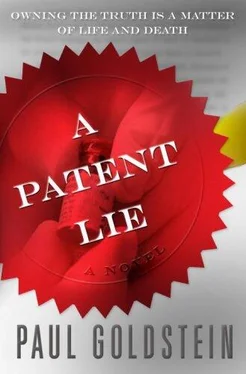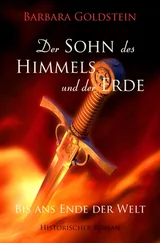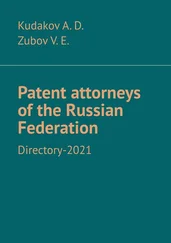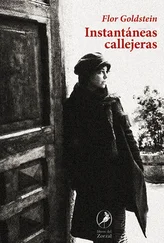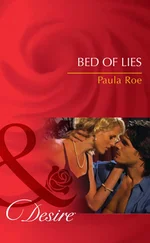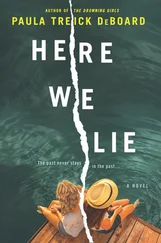Paul Goldstein - A Patent Lie
Здесь есть возможность читать онлайн «Paul Goldstein - A Patent Lie» весь текст электронной книги совершенно бесплатно (целиком полную версию без сокращений). В некоторых случаях можно слушать аудио, скачать через торрент в формате fb2 и присутствует краткое содержание. Жанр: Криминальный детектив, на английском языке. Описание произведения, (предисловие) а так же отзывы посетителей доступны на портале библиотеки ЛибКат.
- Название:A Patent Lie
- Автор:
- Жанр:
- Год:неизвестен
- ISBN:нет данных
- Рейтинг книги:3 / 5. Голосов: 1
-
Избранное:Добавить в избранное
- Отзывы:
-
Ваша оценка:
- 60
- 1
- 2
- 3
- 4
- 5
A Patent Lie: краткое содержание, описание и аннотация
Предлагаем к чтению аннотацию, описание, краткое содержание или предисловие (зависит от того, что написал сам автор книги «A Patent Lie»). Если вы не нашли необходимую информацию о книге — напишите в комментариях, мы постараемся отыскать её.
A Patent Lie — читать онлайн бесплатно полную книгу (весь текст) целиком
Ниже представлен текст книги, разбитый по страницам. Система сохранения места последней прочитанной страницы, позволяет с удобством читать онлайн бесплатно книгу «A Patent Lie», без необходимости каждый раз заново искать на чём Вы остановились. Поставьте закладку, и сможете в любой момент перейти на страницу, на которой закончили чтение.
Интервал:
Закладка:
“I got a call from Herb Phan this morning.” The busy San Mateo police lieutenant had found the time to call the former county prosecutor. Barnum drew close and Seeley again smelled the peppermint. “Herb likes to focus on his investigations, and he doesn't like lawyers looking over his shoulder. You could take a lesson in concentration from him. Forget the widow. Let's win this case.”
Barnum left, giving Seeley his first unhurried moment of the day. With jury selection on Friday, Steinhardt descending from Paris, Thorpe from Akron, and Cordier from New York-he again reminded himself to return Cordier's call-the quiet would be his last for the next two weeks.
Seeley surveyed the patchwork that surrounded the courthouse: parking lots, luncheonettes, a tire store, low-rise apartment and office buildings. Unlike the high-rise canyons of the business district two miles away and the grand, implausible architecture of the Civic Center next door, the jumble reminded him of nothing so much as the desolate heart of Buffalo's once-thriving downtown. The thought of his hometown pulled at Seeley as it did whenever he was away from it, perhaps because, as dark as the memories were, it was the one place where he felt entirely safe. He did not feel safe in San Francisco.
TEN
Click, click, click.
Jury selection moved forward like tumblers falling in a lock, Judge Farnsworth leaving no question about her complete control of the courtroom. On the benches in the first two rows of the gallery, the thirty or so prospective jurors talked quietly among themselves, waiting while the judge ruled on motions in other cases and on a last-minute evidentiary motion from Fischler. Thorpe was still absent, and the judge didn't ask why.
After she disposed of Fischler's motion, Farnsworth turned to Seeley. “Aren't you forgetting something, Counselor?”
The corrected pro hac papers had been filed, but the judge hadn't yet acted on them, and Seeley didn't enjoy being a supplicant. With a teasing smile, Farnsworth said, “Your motion for admission is granted.”
At eight, the judge's clerk, a radiant black woman wearing gold hoop earrings, looked out to the gallery and read a name, Floyd Ramsey, from the paper in her hand, directing the prospective juror to the seat in the jury box closest to the judge. As he took his place in the front row, Farnsworth greeted him. “Good morning, Mr. Ramsey.” She and the clerk continued on this way until they had filled all fourteen seats in the two rows of the jury box.
In a federal civil trial, a jury of as few as six can render a verdict, but the verdict must be unanimous. Palmieri had told Seeley that Farnsworth was going to impanel eight jurors, with the expectation that illness or an unexpected obligation over the course of the two-week trial might drop the number to seven or even six. This meant that, with each side entitled to three peremptory challenges, the judge was going to be strict in ruling on challenges to disqualify a juror for cause.
Surveying the courtroom as he waited for the first panel of jurors to take their seats, Seeley found himself thinking of m words: magisterial, medieval, murky. There were no windows in the courtroom, and the shadowy corners and dull reflections off the dark wood paneling made it easy to imagine a royal court or ecclesiastical hall from another century. The two heavy oak counsel tables were large enough for a banquet, and the witness box and desks for the clerk and the court reporter, a sharp stick of a woman with carrot-orange hair, clung like dependencies from the judge's bench. Only the polished granite behind the judge was amply lit, casting a halo around her robes.
The wooden gate separating the well of the courtroom from the gallery squeaked softly when someone passed through it, and Seeley and Palmieri turned when Thorpe came in. Everyone in the courtroom, even the judge, watched as the old lawyer shuffled to counsel's table, but Thorpe gave no sign that he was aware of the attention. Seeley figured his adversary to be in his late seventies, but the way his narrow shoulders locked into a shrug when he put his briefcase down and waited for a nod from Farnsworth to introduce himself had less to do with age, or even fatigue, Seeley thought, than with melancholy. His suit was well pressed, the white shirt starched; a silk tie was neatly knotted beneath a bloodhound's jowls. But sadness clung to him like a garment.
“Emil Thorpe for defendant, Laboratories St. Gall, Your Honor.” The voice was of a piece with the man's appearance: gravelly, tired, sorrowful; the voice of a man who had been up too late, smoking too many cigarettes, pushing large boulders uphill. “I apologize for my tardiness.”
“Your time is your own, Mr. Thorpe, and it is of no concern to the court”-she nodded in the direction of the jury box-“so long as you do not waste the time of these good people.”
Fischler had left for Thorpe the same seat at the head of the table as Palmieri left for Seeley. In addition to Fischler and Dusollier, two men and a woman were at Thorpe's table. Seeley didn't know the men, but recognized the woman as a well-traveled jury consultant. From the jurors' personal and educational backgrounds, and from their body language as the trial progressed, the expert would-or so she promised the lawyers who hired her-tell counsel which questions, arguments, and exhibits would work and which wouldn't. For a case of this size, she would probably also assemble a paid phantom jury to mirror the actual jurors' traits, giving Thorpe the chance to try out his tactics. Seeley thought that these consultants were about as useful as astrologers, and was pleased that Pearsall had rejected Barnum's suggestion to hire one.
Farnsworth thanked the prospective jurors, both those in the jury box and those still in the gallery, for coming to court. Leaning over the bench, her hands clasped in front of her, she told them that the trial involved plaintiff, Vaxtek's, claim that defendant, St. Gall, had infringed Vaxtek's patent on AV/AS, a treatment for HIV/AIDS, and St. Gall's defense that the Vaxtek patent was invalid and, even if it were valid, St. Gall had not infringed on it.
“You will find this to be a fascinating case,” she said, taking care to make eye contact first with those in the jury box and then with those still in the gallery. “It is an important case, too, in terms of its impact on the lives of people around the world. There's going to be some science for you to understand, but these are fine lawyers”-she nodded toward the two tables-“and, together with their witnesses, they are going to be your teachers. You may also hear some things about American patent law, but you needn't be concerned with these until the end of the trial, when I will instruct you on the law you should apply to the facts. This is, I promise, going to be a lot more enjoyable than your high-school biology class, and you'll be glad to know that there won't be an exam at the end”-two or three in the jury box laughed tentatively-“but you will, at the end of the trial, need to come to a verdict, a unanimous verdict.”
Seeley had assigned an associate on the trial team to gather background on all of Farnsworth's cases from the time she was appointed, so he knew that she not only had fewer reversals than any other judge in the Northern District, but also that in her eight years on the bench, none of her juries had ever failed to reach a verdict. This was no accident. Judge Farnsworth lavished on the jurors in her courtroom a degree of attention and care that so exceeded their expectations, the jurors reciprocated with a loyalty of their own. If the judge wanted a unanimous verdict, they would find a way to give her one.
On an easel across from the jury box, questions printed on a poster-sized sheet of cardboard solicited the prospective jurors' name, residence, educational background, occupation, spouse or partner's occupation, hobbies, and whether any of them had previously been a juror or party in a lawsuit. As each of the fourteen in the jury box answered the questions, Seeley wrote the information on a lined white pad and Palmieri typed it into his laptop. Fischler and the jury expert did the same, but Thorpe, slumped in his chair, was absolutely still, giving no sign that his thoughts were here and not still in Akron.
Читать дальшеИнтервал:
Закладка:
Похожие книги на «A Patent Lie»
Представляем Вашему вниманию похожие книги на «A Patent Lie» списком для выбора. Мы отобрали схожую по названию и смыслу литературу в надежде предоставить читателям больше вариантов отыскать новые, интересные, ещё непрочитанные произведения.
Обсуждение, отзывы о книге «A Patent Lie» и просто собственные мнения читателей. Оставьте ваши комментарии, напишите, что Вы думаете о произведении, его смысле или главных героях. Укажите что конкретно понравилось, а что нет, и почему Вы так считаете.
